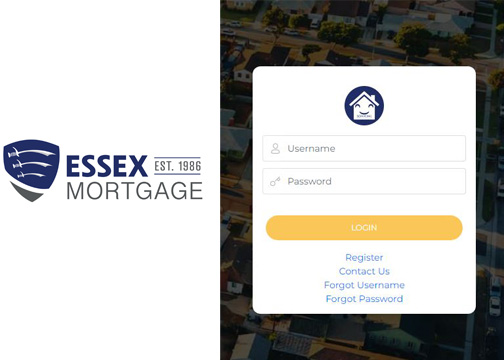Are you ready to learn how to refinance student loans easily to lower your monthly payment and then save you a lot of money in the future? Student loan refinancing is a secure way to lower your interest rate. When you decide to refinance your student loan, this means your private lender will pay off your student loans. This gives you an avenue to save money by replacing your old school debt with a new cheaper loan through your private lender.

To know the best way to refinance student loans, you may have to meet certain requirements which include having a good to excellent credit score, a stable income, and a co-signer to help you qualify for a lower interest rate. Plus, you must ensure your loan meets the eligibility requirements and also choose the right lender.
Easy Guide on How to Refinance Your Student Loans
There are important steps you need to take when refinancing student loans. They include;
- Compare your refinancing interest rates from various lenders
- Check the loan terms and choose your lender
- Check out for prequalification
- Gather your documents and fill out the application
- Keep paying your student loans
Compare your Refinancing interest Rates from Various Lenders
It is very important you dissect the varying rates of your lenders when you want to refinance your student loan. This is because your Student loan refinances lenders will check your steady income and credit history to determine your rate if they will lower your interest rate or not. This is why it is compulsory to carry out thorough research on the average interest rates required by a lender that meets your credit score. This will determine your value before accepting the terms and conditions of the lender.
Check the Loan terms and choose your Lender
This section tells you about the Pros and cons of all the lenders’ terms and conditions.
- How long will it take for you to repay the loan
- Do you want a fixed rate or variable rate
- What is the required credit score
- If it requires you to put down your collateral such as a car, or home to improve your chances of securing the loan and also improve your interest rate.
- Are there any prepayment penalties
- Is there any late fee charges or origination fee?
READ ALSO >>>>>>>>>>>> PNC Student Loan Refinance Reviews – Everything You Need to Know
Who Took Over Wells Fargo Student Loans – Everything You Need to Know
Gather your Documents and Fill out the Application
When you want to complete your application, it is important you prepare all your documents. Some of the document you should gather includes;
- Student loan statements
- Government-issued ID – Driver’s license, passport, etc.
- Proof of graduation
- Proof of employment (W-2 form, recent pay stubs, tax returns).
- Social Security number or equivalent like Individual Taxpayer Identification Number.
- Proof of residency
Check out for Prequalification
Prequalification gives you a better chance of getting your student loan refinanced. When you want to prequalify for your student loan refinance, consider the following below;
- You will be asked to provide basic information such as your school, income, and loan amounts
- Prequalifying won’t affect your credit score
- Choose an offer and complete your application on the lender’s site.
Keep paying your Student Loans
If you are lucky to get a pre-approval for your new loan, it is very important you continue to pay your money and don’t miss the payment deadline. If you know you can’t meet up your payment due date, kindly contact your lender.
Current Student Loan Refinance Rates
| Lender | Terms | Fixed APR Range | Variable APR Range |
| PenFed Credit Union | 5, 8, 12, or 15 years | 4.49% – 6.68% | 0% – 0% |
| Earnest | 5 to 20 years | 2.99% – 7.99% | 1.74% – 7.99% |
| SoFi | 5, 7, 10, 15 or 20 years | 3.49% – 7.99% | 1.74% – 7.99% |
| LendKey | 5, 7, 10, 15 or 20 years | 2.69% – 7.93% | 2.05% – 5.25% |
| Education Loan Finance | 5, 7, 10, 15 or 20 years | 2.73% – 5.99% | 1.86% – 6.01% |
| Commonbond | Flexible repayment options | 4.49% – 7.74% | 1.86% – 6.01% |
Source: Nerdwallet
Best Student Loan Refinance Companies for:
| Refinancing without a degree | Good choice for students who didn’t graduate |
| Refinancing with a co-signer | Co-signers can strengthen and improve your chances of getting approval |
| Refinancing parent PLUS loans | Find a lower rate or refi in your child’s name |
| Refinancing international student loans | Most lenders require a qualified co-signer |
| Paying off student loan debt faster | Get rid of debt more quickly |
Frequently Asked Questions about Refinancing Student Loans
What credit score do I need to refinance Student Loans?
When you want to refinance your student loans, you or your co-signer need a minimum good credit score of 600 or 700 and above. If your co-signer has a good to excellent credit score, it grants you a better chance of getting qualified or even getting approval.
Is it a Nice Idea to Refinance Student Loans?
Refinancing is a very nice idea if you become eligible for a lower rate which may make you give up any benefits attached to federal student loans. When you refinance your federal loans, you lose access to loan forgiveness programs, federal loan perks, and income-driven repayment plans.
Which is the best lender to refinance with?
Most borrowers prefer to go with the lowest interest rate they are eligible for. But if rates are similar, kindly check for lenders that offer other features you value, such as flexible repayment plans in case of a sudden financial hardship or the ability to refinance parent PLUS loans in the child’s name.
What happens when you refinance student loans?
When you refinance student loans, a private lender pays off your old education debt and replaces them with one loan with a new interest rate and repayment plan. Going forward, you’ll make monthly payments to the new lender.
READ ALSO >>>>>>>>>>>>>>>> How to Apply for a Home Loan – 6 Complete Steps
SBA Economic Injury Disaster Loans – How to Apply for Economic Injury Disaster Loans (EIDL)
Bank of America Mortgage Reviews 2022 – Everything You Need to Know
Discover Student Loans Review 2022 – Everything You Need to Know






